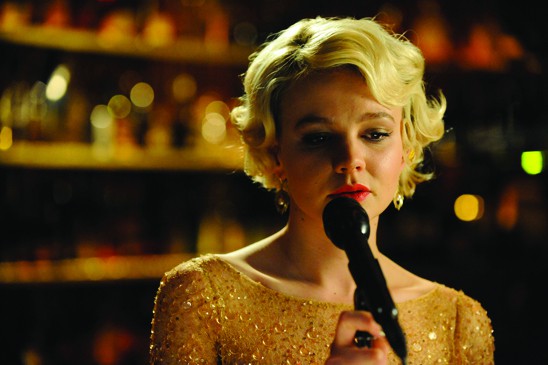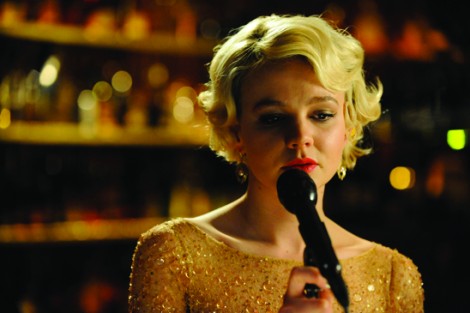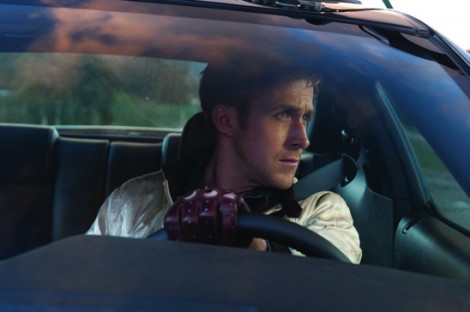Hobo with a Shotgun
Dir. Jason Eisner
Jason Eisner’s Hobo with a Shotgun is a bumpy yet pleasurable ride into exploitation recreation at its finest: 15-year-olds inhaling mountains of cocaine, headless corpses spewing blood, and hobos chewing broken glass. Still, Hobo’s 1980s inspired neon imagery makes its horror hypnotic, evocative, and chic; a stellar Canadian production.
Carnage
Dir. Roman Polanski
Carnage is relentless in its presentation of multilayered, deep-rooted marital malfunctions that ail two yuppie couples. Carnage demands both careful attention and a wild sense of humour from its audience, but its comical War of the Roses-style anti-romance sentiment is entirely worth a watch.
Shame is all about sex, but don’t let that confuse you about what you are getting into. McQueen’s vision is stark, ravenous, and desirably unapologetic in its style and all this amounts to an incredibly vivid and focused gaze into sex addiction — a top notch film from a top-notch auteur.
Café de Flore
Dir. Jean Marc Vallee
Café is an ambitious project, to say the least. Quebecois filmmaker Jean-Marc Vallee established his original — and now unmistakable — DJ turned director style in his previous film, C.R.A.Z.Y (2005), but Cafe’s brilliance resides in Vallee’s adept connection of a frenzy of seemingly unsynchronized life events into a psychedelic cataclysm of grand proportions.
Melancholia
Dir. Lars Von Trier
Although burdened at times by its broad range of issues (the apocalypse, depression, a troubled wedding), Melancholia is in unison with Von Trier’s previous effort Antichrist (2009). Von Trier mystifies, entices, and then terrifies viewers into submission and acceptance of his explanation of how the world works. This is okay because the end of days has never looked more stunning.
50/50
Dir. Jonathen Levine
You’d be hard pressed to find another film of 2011 that accomplishes the daunting feat that 50/50 does: laugh at cancer. Written by cancer survivor Will Reiser, 50/50 deserves a place on this list because its original blend of humour and humanity is admirably juxtaposed with the flock of horribly unoriginal sequels of 2011.
Drive
Dir. Nicholas Winding Refn
Refn dazzles with a sleek, fluorescent pink, ‘80s synth-pop film that nods its head to Hobo with a Shotgun’s definitive true exploitation revival aesthetic. Drive wins with stellar performances and dreamy art house imagery that negotiates the proper, and long awaited, resurrection of the ‘80s action hunk (Stallone, Schwarzenegger, etc).
Martha Marcy May Marlene
Dir. Sean Durkin
Martha’s heavy fragmentation, surrealist methods, and overall ambiguous aesthetic concocts a potential recipe for disaster, but director Sean Durkin, aided by the impeccable performances of newcomer Elizabeth Olsen and fellow cast, shows that he knows what all these ingredients can amount to. Martha puts forth an extremely Bergman-like effort that pleasurably rivals its prototype in its haunting execution.
Bridesmaids
Dir. Paul Feig
Bridesmaids was initially presumed to be a female response to The Hangover (2009), but the dexterity of Bridesmaids’ wittiness left audiences and critics happy to finally see where women fit in a male-dominated world of gross-out humour. Two years of script crafting at the hands of co-stars Wiig and Mumolo show that Bridesmaids is far ahead of any wolf pack.
The Tree of Life
Dir. Terrence Malick
Lyrical in delivery, poetic in vision, and spiritually evocative, Tree takes on the overwhelming task of elucidating the mysterious origins of humans. Malick’s Tree is a contemporary indication that truth-seeking is forever a marketable concept, especially when executed with such undeniable finesse.




